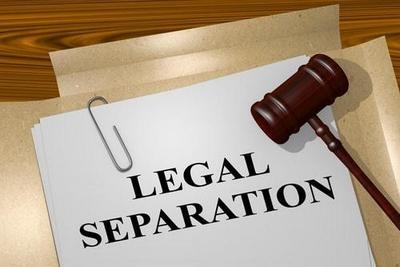Understanding Legal Separations
 When two people decide they no longer wish to be married, they normally file a petition and obtain a divorce. At any point there may come what is often called a “separation.” With rare exceptions, being “separated” is not a legal status. Legal separation does sometimes happen, but most of the time, it is simply unnecessary.
When two people decide they no longer wish to be married, they normally file a petition and obtain a divorce. At any point there may come what is often called a “separation.” With rare exceptions, being “separated” is not a legal status. Legal separation does sometimes happen, but most of the time, it is simply unnecessary.
When a Spouse Moves Out
When most couples separate, they simply decide not to live together anymore. One spouse may move out, and marital benefits like intimacy and cooperative decision-making typically cease. Such situation is not considered a legal separation, however. In the eyes of the law, most couples that are “separated” are still legally married, with all the positives and negatives of that status attached.
Trial separations are usually the last fix a couple tries before agreeing to divorce. Many couples live apart for weeks or months and are able to work out issues exacerbated by too long in proximity. Some couples who try a separation do work out a written agreement, but it is informal and not to be confused with a legal separation or a divorce decree. In this case, any written agreement is a sort of unofficial contract for the spouses to abide by, reminding them to reevaluate their situation in a certain amount of time.
Legal Separation
In Illinois, legal separations do exist. However, they are used primarily in a strategic fashion if it is believed that a divorce case will drag on for an extended amount of time. They are conducted in a manner similar to that of divorce cases, following most of the same laws and the same procedures. The primary difference is that the parties to a legal separation may not marry anyone else, and parties to a divorce may marry as soon as the divorce is final.
Most of the time, legal separations are pursued instead of divorces (or to later be converted into divorces) for financial reasons. For example, a person going through a divorce may have a promising economic opportunity on the horizon, but any proceeds he or she receives while the divorce is ongoing could be found to be marital and subject to division. Obtaining a legal separation would allow that person to protect the possible profits without resorting to hiding assets or being deceitful.
Some people will also obtain legal separations if their religion forbids divorce. Legal separations for religious reasons, however, are relatively rare.
Legal separations may be filed in Illinois if one or both spouses have lived there for at least 90 days. However, parental responsibility determinations may only be part of a legal separation if the children have lived in Illinois for six months or longer. Also keep in mind that the court will not divide marital property on its own in a legal separation. If the spouses present a reasonable property settlement, the court may approve it, but it will not force a legally separating couple to divide marital assets.
Unusual Situations Require Skilled Professionals
If you are in a situation that you believe would benefit from a legal separation, contact an experienced family law attorney in Naperville for guidance. Call 630-352-2240 for a confidential consultation at Pesce Law Group, P.C. today.
Source:
http://www.ilga.gov/legislation/ilcs/ilcs5.asp?ActID=2086&ChapterID=59











 630-352-2240
630-352-2240



